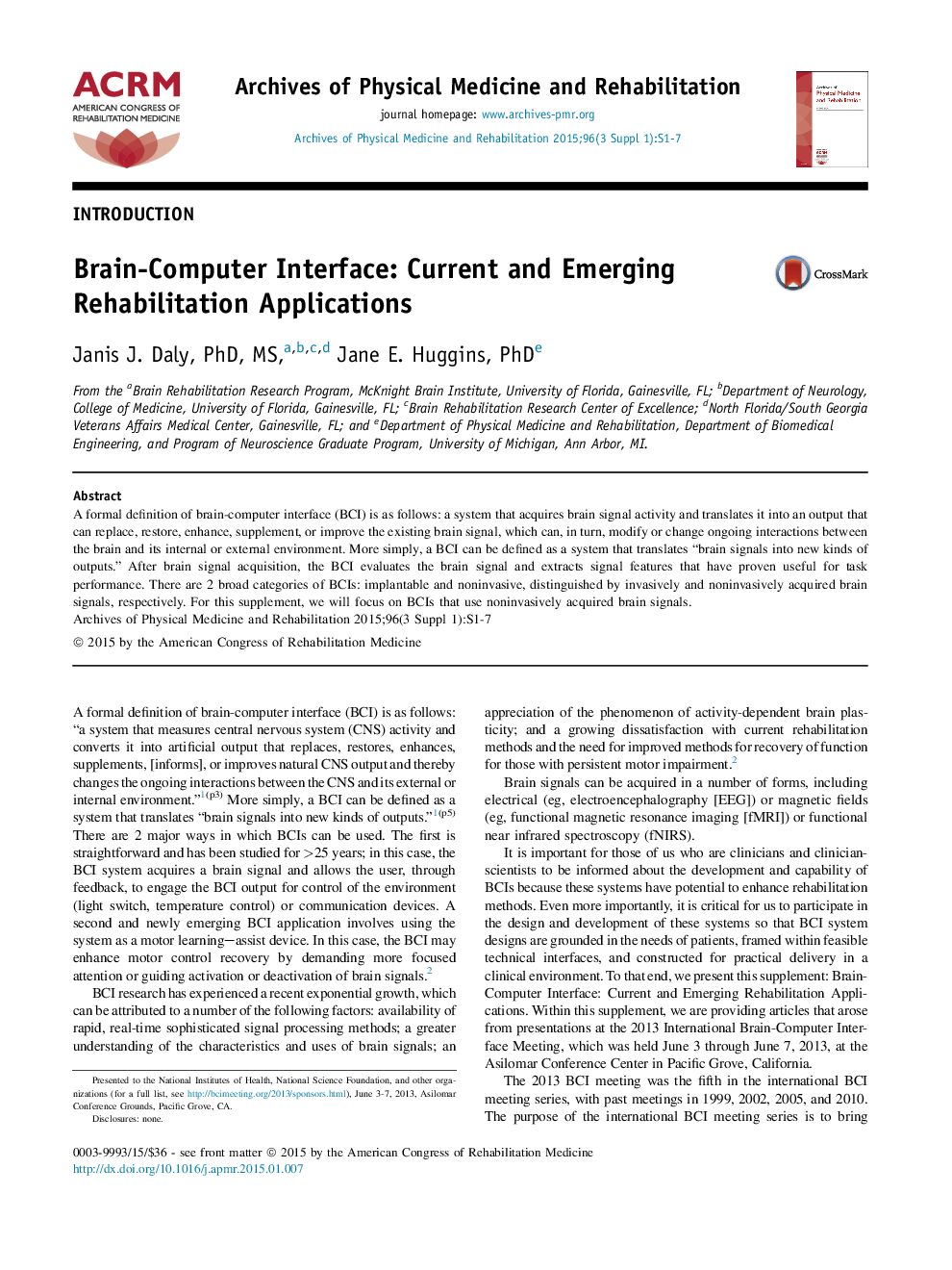| Article ID | Journal | Published Year | Pages | File Type |
|---|---|---|---|---|
| 3448131 | Archives of Physical Medicine and Rehabilitation | 2015 | 7 Pages |
A formal definition of brain-computer interface (BCI) is as follows: a system that acquires brain signal activity and translates it into an output that can replace, restore, enhance, supplement, or improve the existing brain signal, which can, in turn, modify or change ongoing interactions between the brain and its internal or external environment. More simply, a BCI can be defined as a system that translates “brain signals into new kinds of outputs.” After brain signal acquisition, the BCI evaluates the brain signal and extracts signal features that have proven useful for task performance. There are 2 broad categories of BCIs: implantable and noninvasive, distinguished by invasively and noninvasively acquired brain signals, respectively. For this supplement, we will focus on BCIs that use noninvasively acquired brain signals.
